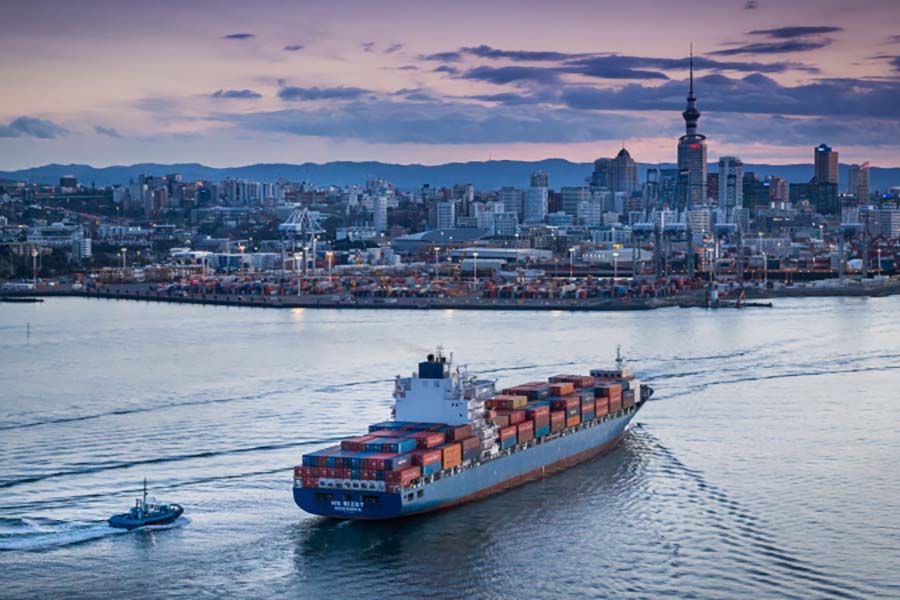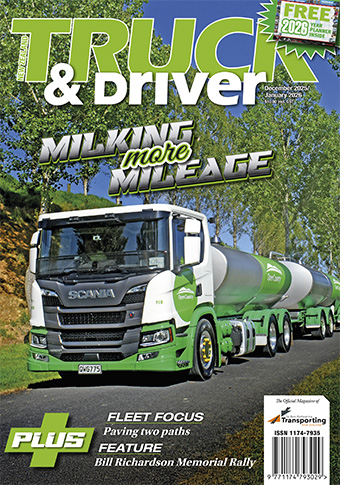Aeolus Truck & Driver News


Auckland hikes vehicle booking fees
Aeolus Truck & Driver News
Port of Auckland (POAL) will hike its Vehicle Booking System (VBS) prices from the beginning of next year, adding further cost pressures for New Zealand importers and exporters as well as transport operators servicing the port.
The National Road Carriers (NRC) says the 59% increase in VBS prices are part of an escalation of costs which are threatening the viability of many carriers, who are unable to pass on the higher costs until contracts can be renegotiated.
“While VBS charges are eventually paid for by cargo importers and exporters, the challenge for transport operators is they are forced carry the costs in the interim, while contracts are renegotiated, often out of cycle, in an effort to be reimbursed appropriately,” says Justin Tighe-Umbers, NRC Chief Executive.
Details of the price rises include Peak VBS charges increasing from $65 to $95 and Off-peak VBS charges from $20 to $40. It equates to an average VBS increase from $42.50 to $67.50.
...Port of Auckland (POAL) will hike its Vehicle Booking System (VBS) prices from the beginning of next year, adding further cost pressures for New Zealand importers and exporters as well as transport operators servicing the port.
The National Road Carriers (NRC) says the 59% increase in VBS prices are part of an escalation of costs which are threatening the viability of many carriers, who are unable to pass on the higher costs until contracts can be renegotiated.
“While VBS charges are eventually paid for by cargo importers and exporters, the challenge for transport operators is they are forced carry the costs in the interim, while contracts are renegotiated, often out of cycle, in an effort to be reimbursed appropriately,” says Justin Tighe-Umbers, NRC Chief Executive.
Details of the price rises include Peak VBS charges increasing from $65 to $95 and Off-peak VBS charges from $20 to $40. It equates to an average VBS increase from $42.50 to $67.50.
NRC says the increase comes on the back of large increases which have seen POAL move from a flat vehicle booking rate of $8 to new Peak and Off-peak rates that are now up to 10 times higher than operators were paying two years ago.
“It’s clear POAL is under pressure to improve profitability, and that the Mayor and the Council are asking for a better commercial return for Auckland rate payers,” says Tighe-Umbers.
NRC says signalling the price hikes the four month in advance is of some benefit, but transport operators have the right to expect that improved services will accompany the increases.
“My advice for transport operators is use the time wisely: alerting your customers now is how you can help to avoid any price shocks,” says Tighe-Umbers.
“But there must be a quid-pro-quo here – transport operators need to see improved services and should not just be considered an easy revenue tap to turn on.
“We met with POAL seeking more detail on the relationship between the underlying operational costs with facilitating container road transport and how this relates to the VBS charge. With the charges going up we were clear that our members expect service enhancements in return for this increased investment. POAL has confirmed they will be investing in better parking and driver facilities, alongside improved service level reporting and issues management.”
NRC has spoken to POAL previously about the need for charges to be related to actual operating costs or cost of capital for future investments. Tighe-Umbers believes principled pricing is important given any price distortions are magnified on the wider economy due to the port’s critical role as provider of strategic infrastructure to the supply chain, and its near monopoly in the Auckland region.
“It’s positive that POAL has acknowledged transport operators as customers, and taking a more customer-centric approach to operators is important. Confirmation that revenue from the increases helps fund capital investments on landside that improve road transport operations will certainly be welcomed,” says Tighe-Umbers.
“We are continuing to have conversations with POAL on how a structured, predictable pricing model for road transport operator charges could work, and we will continue to advocate for our members to ensure greater transparency around pricing.
“It’s clear POAL is on a journey to return sustainable profitability, we’re asking for a clear five-year price path so transport operators can better manage the impact.”



 + EQUIPMENT GUIDE - FREE
+ EQUIPMENT GUIDE - FREE
